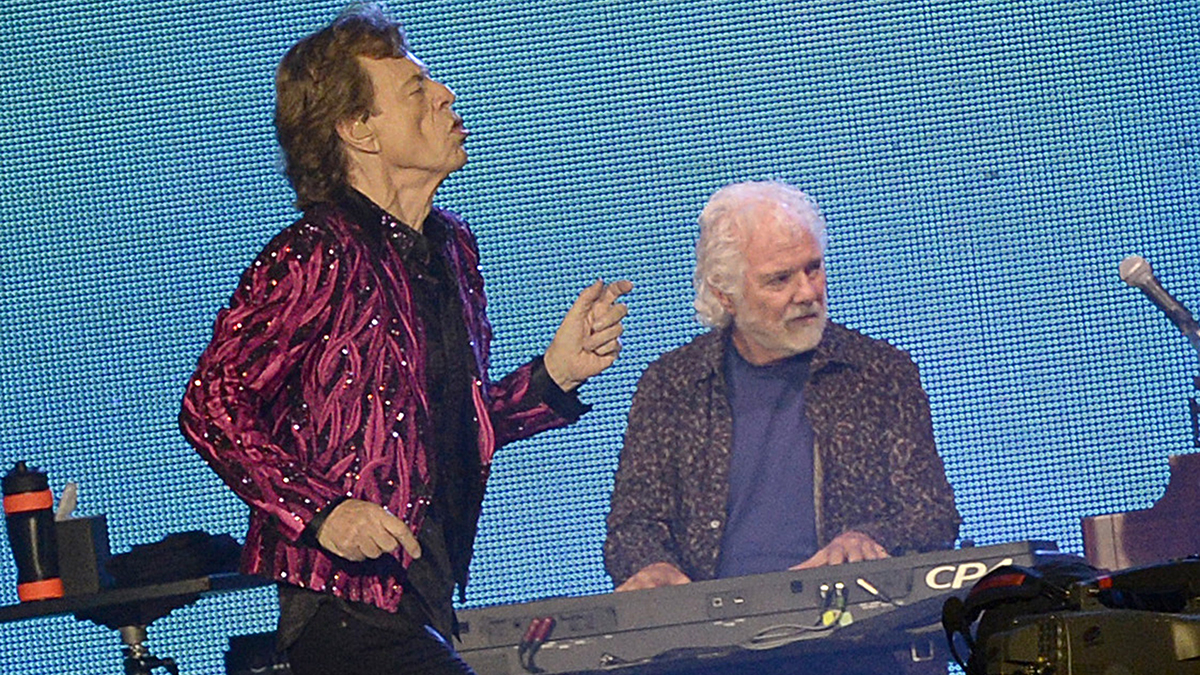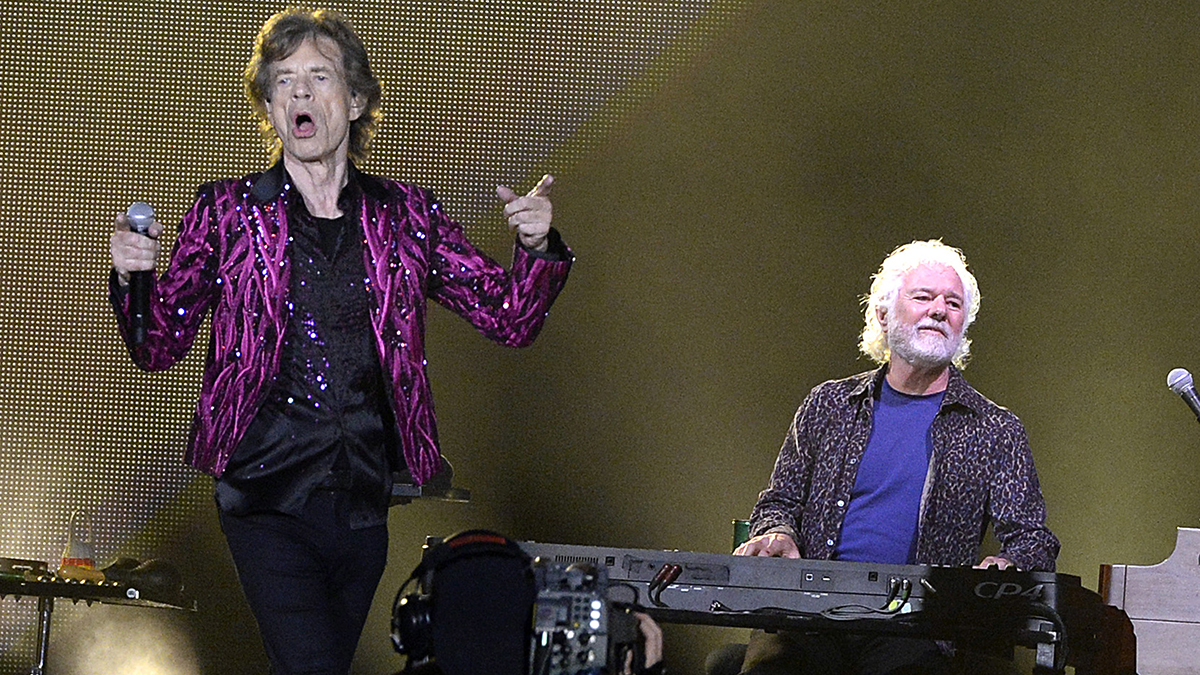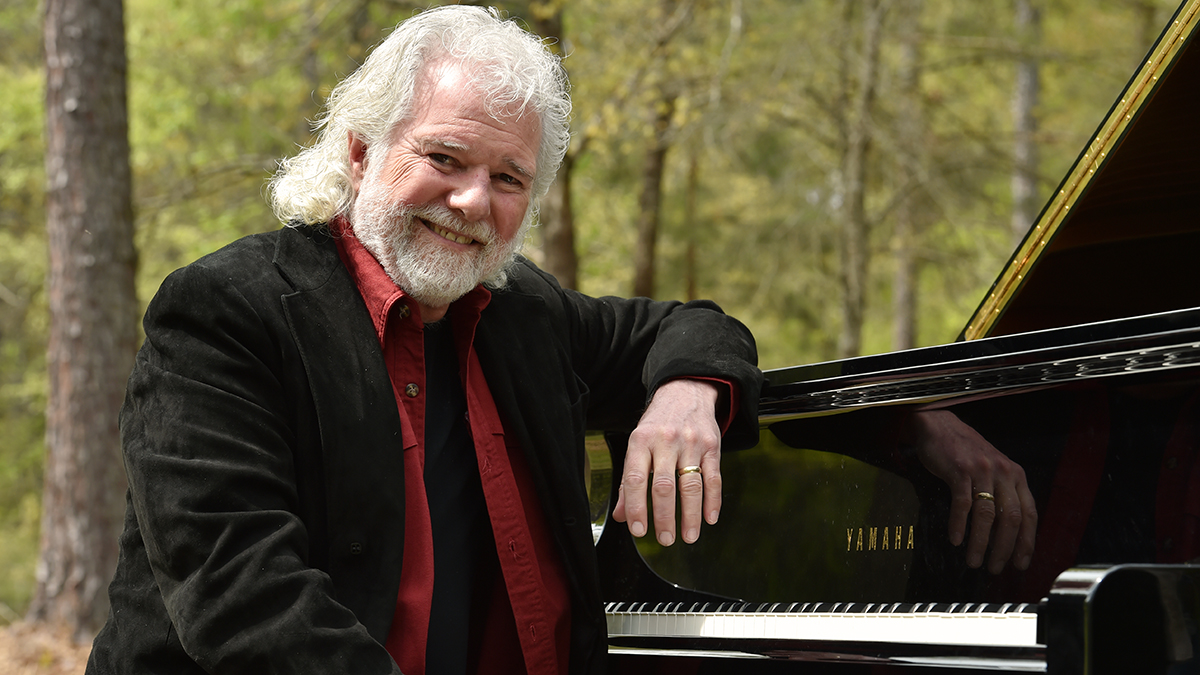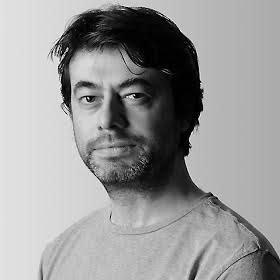Keyboard legend Chuck Leavell on being The Rolling Stones’ Musical Director: “It’s a challenge at times!”
Best of 2022: "Are Mick and Keith speaking to each other right now? They’re brothers"

Want all the hottest music and gear news, reviews, deals, features and more, direct to your inbox? Sign up here.
You are now subscribed
Your newsletter sign-up was successful
BEST OF 2022: Pianist and vintage keys pro Chuck Leavell has been at the top of his game for more than 40 years, playing on record and live with The Allman Brothers, Eric Clapton, George Harrison, John Mayer, The Black Crowes and - of course - The Rolling Stones.
In addition to his prolific and prestigious musical career, Leavell is also an active environmental campaigner, and co-founder of the influential Mother Nature Network website.
As long-standing Musical Director for The Rolling Stones he’s currently with the band, starting out on their brand new ‘Sixty’ tour - celebrating 60 years of great music - taking The Stones out on the road for 14 dates across Europe. We caught up with Chuck in rehearsals before the first gig in Madrid…
How are you doing, Chuck? Is the tour all set?
“It’s fantastic. Of course, we’ve had the sad loss of Charlie Watts but Steve [Jordan] came in for the tour of the US last year and all of us have known Steve for a long time, so it’s not like he’s a new guy. And he’s known ‘the book’ backwards having worked very closely with Keith on solo projects. Now that we’ve got one tour with Steve under our belts and the rehearsals are just finished it feels really, really natural now.
“Of course we miss Charlie - Charlie was there for 59 years - and Steve honours certain of his parts, of course. Just like I try to honour some of the parts by Nicky Hopkins or Billy Preston or Ian Stewart. It’s really feeling like a band now and we’re anxious to bring it to the people.”
Charlie always seemed like the ‘firm hand on the tiller’ of the Stones. Keeping everything together.
Want all the hottest music and gear news, reviews, deals, features and more, direct to your inbox? Sign up here.
“Absolutely. He has a certain delicate touch. I’ll tell you a secret about Charlie. He used big heavy sticks. But he had a light touch. The heavy sticks created that Charlie Watts sound, but his technique was very delicate, which made for a unique style of drumming, as we know.”
Tell us about being Musical Director of the Rolling Stones. They’re quite an unpredictable bunch…
“Yes, it’s a challenge at times! I sort of scoff at that moniker. Mick and Keith are the Musical Directors of the Rolling Stones. Back in ‘82 - that was my first tour with the band - the setlist was the same every night for the 20 to 30 shows that we did. But in ‘89 we had a new record - Steel Wheels - and I made a point of saying to the guys ‘let’s not do the same set every night, you’ve got this incredible catalogue, you’ve got new songs, let’s go deep’.
“When we started the rehearsals and started to explore the songs, I started making hand-written chord charts of them, and making notes. So if there were background vocals, where did they come in? If there were horn parts, what were the horn parts? And the roadie I was working with at the time said ‘hey man, you’ve got pieces of paper everywhere, I’ve got to organise this for you’ and he went out and got a notebook with plastic sheets and he alphabetised everything.

“And this went on for the next tour - Voodoo Lounge - and the next one, the next one, the next one… Consequently I’ve got two deep volumes of notebooks, alphabetised, with all the notes and chord charts. Most of it I can keep in my head, but if there’s ever a question - ‘Hey Chuck, does the solo come before or after the middle eight?’ - y’know? I started to be able to give those answers.
“And Charlie felt comfortable if I could give him cues. So, if there’s a breakdown coming up, I’d give visual cues to him, or to Mick. Sometimes when Mick is out there entertaining the crowd he might get a little lost and I can be ‘Hey, it’s a verse’ [he holds his hand in ‘V’ shape] or ‘It’s a chorus’ [he makes a letter ‘C’]. So that’s kinda how the moniker came about. They were being kind to me and they put ‘Musical Director’ in the program these days, but I laugh at it. I’m just happy to do what I can.”
We were watching Martin Scorsese’s Shine A Light movie the other day and they won’t tell him the setlist until one second before the show starts. I guess things are a little more locked down for this tour?
“I draft the set list and in rehearsals I draft the songs of the day. And of course, I do this with Mick. We get together and I’ll compile a list and say ‘Hey, we haven’t done this one… All Down The Line… Or Rocks Off… Or She’s A Rainbow. Maybe we should go over these?’ And he’ll pick and choose. And we work together.
You know you’re gonna do Start Me Up. You KNOW you’re gonna do Can’t Always Get What You Want. And you’re gonna do Tumbling Dice every night. And Street Fighting Man…
I keep a database of every setlist we played at every city on every tour. And so here we are in Madrid. It was 2014 the last time we played here and I can see what the setlist was. And we played Barcelona in 2017 so I want to look at that to compare, just so we can make it a little different.
“That said, you know you’re gonna do Start Me Up. You KNOW you’re gonna do Can’t Always Get What You Want. And you’re gonna do Tumbling Dice every night. And Street Fighting Man… 65% of the set you know what it’s gonna be, but you can fool around with the rest of it. I won’t spill the beans but there’s one song now that the last time it was performed was in 1969. So it’s fun to work on these and bring something fresh to the audience. It’s fun to be a part of making those decisions.”
So you do know what song is coming next?
“There’s a part of the show - we’ve been doing this for about 15 years - we call it ‘the vote song’ and it’s officially known as ‘by request’. We put four songs up on social media and we let the fans pick. It’s a great way to let the fans have their say. We’ve had over 200,000 votes on songs. It’s a wonderful way to interact.
“But the setlist is always decided by the soundcheck. I’ll send a draft to the guys and if there’s any last minute decision about this or that, then we can make that call. Then the list is printed for all the crew three hours before the show.”
So what’s the opening song for this tour?
“I can’t tell you, man! I can tell you that the last tour we did, Sympathy [For The Devil] was the opening number a few times, which was a rare thing so we won’t be doing that. Jumpin’ Jack Flash we did quite a lot so we won’t be doing that. I can’t reveal the setlist. That’s top secret. [SPOILER: The band opened at Madrid with Street Fighting Man]”
You’ve worked with so many big stars. Why do you think they want to work with you?
“You want to know the secret? Work cheap, man! Look, my career has always been ‘one thing leads to another’ y’know? The Allman Brothers band… My years with them in the ‘70s. I got to know Bill Graham as a good friend. And then he became Tour Director for The Stones. He was kind enough to put my name forward when they were trying different people on keys. And the Steel Wheels tour had Eric Clapton as special guest on about half a dozen shows and they set him up, close to me on the stage, and we did Little Red Rooster together so there’s a nice musical dialogue between us.
“So then I have a voice on my answering machine [in an English accent] ‘Hello, this is Eric Clapton calling from Hong Kong. I’d like to know if Chuck Leavell would be interested in doing some shows at The Royal Albert Hall?’ Well, yes I would…
We did not think Unplugged would be Eric Clapton's biggest selling record of all time, but it’s an honour that it is.
“The timing was good. And that led to the George Harrison tour. His last tour, the one in Japan. That was an amazing experience. It’s literally been one thing leads to another. John Mayer is a good friend. He’s spent a lot of time in Atlanta in my home town of Georgia. He was working with a guy called Clay Cook in the ‘90s and I did a session remotely on a song they had written together. And he was like ‘Let’s try Chuck on an album or two’. And then David Gilmour…
“I was Musical Director on a show in Passaic New Jersey at The Capitol Theatre in the MTV era. It was called Guitar Greats. I put the band together and we backed up guitar players. Dickey Betts was on the show, Tony Iommi, Lita Ford, Link Wray and David Gilmour… And then my wife was looking at the messages on the guest book of my website and she says ‘Hey Chuck, there’s a guy here that says he’s David Gilmour’. And the message read ‘It’s David Gilmour here - honest.’ And he left an email. I was reluctant to get in touch ‘cos I thought someone was scamming, but I did and sure enough it was David.”
You played on Clapton Unplugged. Did you realise at the time what a giant that was going to be? What is that - 26 million albums sold?
“It’s pretty crazy. At that time Eric was playing with Greg Phillinganes as the lead and I came in to replace Alan Clark who’d gone back to play with Dire Straits. We did 24 nights at The Albert Hall, and then the Japan tour. At the end of that Greg decided that he didn’t want to tour anymore so I got the chair. Unplugged was the next thing after that.
“During the event it was great, but the feeling was, ‘there’s been a lot of Unplugged’. A lot of artists had done it - at least a dozen at that point - and so maybe this is just another one? We did not think it would be his biggest selling record of all time, but it’s an honour that it is.”

On Tears In Heaven you’re playing a harmonium? That’s quite something. It would have been so much simpler to bring a synth?
“[Laughs] Well, we wanted to be true to the name ‘Unplugged’. There have been some artists who’ve cheated a little bit on the show, but we were adamant that we were going to do it the real way. But I can tell you, my legs got a workout that day!”
You’re obviously an amazing pianist too, but surely you’re not bringing a full-size piano out with The Stones these days?
“Well, thank God for the digital age. Technology is so amazing. I’m using a Yamaha CP-4 for piano. And there’s a specialised phased Rhodes sound on there that I use. There’s also a Wurlitzer and that’s the real deal. I’ve yet to hear a digital reproduction of the Wurlitzer that’s as accurate as it needs to be, so I use the real thing. I use a real Hammond, too. Used to be the original Hammond B3 but I’ve retired that now and now use an XK-5. It’s still made by Hammond. Suzuki bought the Hammond name many years ago and they’ve worked really hard to recreate the sound of a B3 and they’ve finally done it. I’m really, really pleased with this instrument.”
When I hear all those synthy sounds from the ‘70s I’m kinda glad that I didn’t go that route. I guess I’m just a purist.
Does that have a Leslie on it as well?
“I use a pedal called The Ventilator. A friend of mine, Greg Black, is a Hammond organ technician. He owns Black Hammond who do great work on Hammond organs, and he turned me on to it. I tried it in rehearsals and I was amazed. The first time I used it the sound man said ‘Man, that thing sounds incredible’. We used to have a Leslie inside an isolated case, but you still get a muffled sound and the wind sound of the horn spinning round but with this pedal just get a direct sound without any distraction. I’m very happy with it.”
I was listening to your big band album which is great. Is that a digital piano there or is that the real thing?
“That’s the real thing. I was invited to come and play as a guest artist with The Frankfurt Radio Big Band and I sent them 12 MP3s of songs I wanted to do and they had three arrangers do the arrangements for them. They had a rehearsal without me there and I arrived the next day to play with them. I was scared shitless. These guys were so good! I’m sitting there thinking ‘You better raise your game up, Chuck, ‘cos these cats ain’t foolin’.
“The album was so well recorded. When we came to the mixes I said ‘Let’s see if we can take the audience out’ and make it more intimate and that’s what we did. The isolation on the recording was so good. So it’s absolutely a live record, front to back, but we’ve just taken the audience out.”
I loved Blue Rose on the album. It’s a great opportunity for you to cut loose with some soloing.
“I’m not a great songwriter but I do like to paint a picture musically with instrumentals. I got to give a shout out to the folks at BMG who were kind enough to put my big band record out. They have the solo records of Keith and Ronnie and Charlie. I think it’s great that they’re supporting us guys.”
Let’s go right back to your work with The Allman Brothers… Jessica, Ramblin’ Man… What were you playing back then? Just whatever was in the studio, or were you playing something special?
“Well, it was a Steinway. It wasn’t a Model D as I recall. It was about a six and a half-foot piano and we used that. Then we did a tour with Greg Allman as a solo artist and we played all these beautiful halls in all these cities, and we played Carnegie Hall. And they had a Model D - nine foot - and it was just brilliant. It was the best piano I’d ever played and everyone who played it wanted to buy it. But the overseer of Carnegie wouldn’t sell it. But then he died, two weeks before we got to play there. So we asked if we could buy it and they said yes!
“We got it back down to Capricorn Records in Macon and so all the records I did subsequently were on that Model D. But Capricorn went bankrupt in 1980 and everything got sold off. I think it went to a church somewhere. That was a special instrument.
“There was a time in the early 80s when there were synthesizers on all the records and I thought ‘I’ve gotta start learning this technology’. I married up with the Korg company and did a lot of clinics around the country, demonstrating their different models, but I thought ‘I just love the piano… And I love the Wurlitzer…’ Vintage keys like the Clavinet and the Rhodes. When I hear all those synthy sounds from the ‘70s I’m kinda glad that I didn’t go that route. I guess I’m just a purist.”
Tell us about your documentary film, The Tree Man. What’s it like being centre stage for a change?
“The impetus for that was just to have a document for my family and future generations. But part of the contract was that ‘Chuck, you must make every effort to secure interviews with all the artists that you work with’ and I was like ‘Oh god, what have you done… Now I gotta go asking favours’. It was a little embarrassing. But we ended up as a tag team where I would do the first ask - ‘Would you be willing?’ - and then [filmmaker] Alan Forrest would do the hard asks. We thought if we can get 60% we’ll be happy… But we got 95% And that was very flattering and a big shock. It worked out great.”
So are you looking forward to the tour ahead?
“Y’know, what an amazing opportunity to celebrate a band’s 60th anniversary? It’s an honour that none of us take lightly. This isn’t just another tour. It’s an amazing thing to be able to go out and do it at this level. Of course, it’s The Rolling Stones and I’m just a part of that, but it’s to celebrate them writing great songs, making great records and playing great shows. We want it right, from the beginning to the end.
“Mick is so dedicated. He does vocal exercises every day and his pipes have never sounded better. His energy has never been better. He knows how to work it.
“Keith and Ronnie on guitar. Everybody has cleaned up and sobered up. Ronnie had a little bout with cancer and got over it so there’s a feeling of ‘Wow! We’ve gone through all this stuff and we still get to do it’. So let’s do it to the utmost that we know how.”
Are Mick and Keith speaking to each other right now?
“They’re brothers. Totally, brothers. I read an interview with Mick and they asked him about that, and he said that the older they get, they realise that whatever conflict here and there they may have had in the past is not there any more. To see them together with Ronnie in rehearsals laughing it up, going off and playing a blues song and Mick grabbing a harmonica and playing so beautifully… They’re brothers. I think we’re all brothers at this time.”
Chuck Leavell’s album Chuck Gets Big with the Frankfurt Radio Big Band is out now.
Daniel Griffiths is a veteran journalist who has worked on some of the biggest entertainment, tech and home brands in the world. He's interviewed countless big names, and covered countless new releases in the fields of music, videogames, movies, tech, gadgets, home improvement, self build, interiors and garden design. He’s the ex-Editor of Future Music and ex-Group Editor-in-Chief of Electronic Musician, Guitarist, Guitar World, Computer Music and more. He renovates property and writes for MusicRadar.com.
